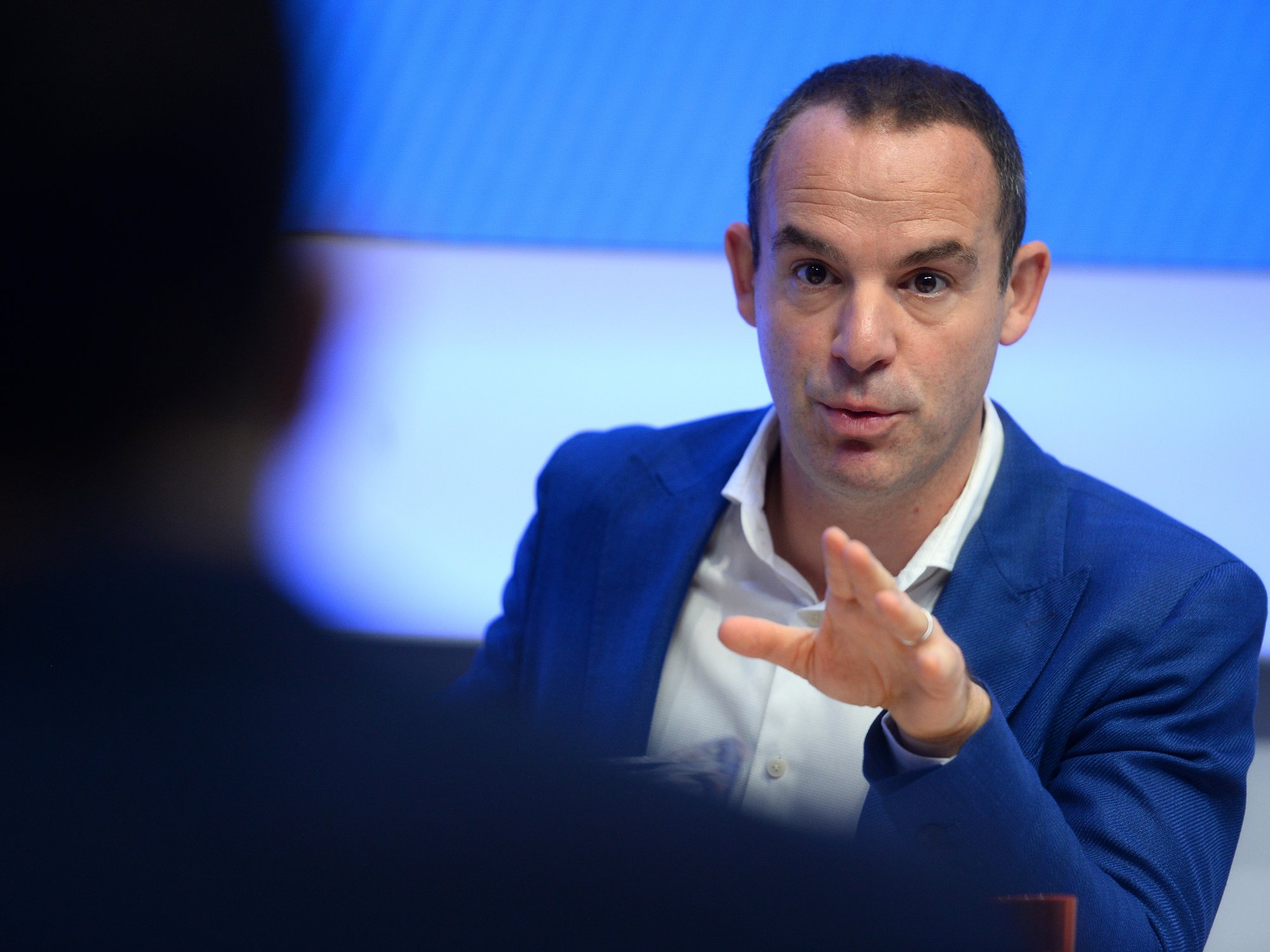Britain's incredible Christian revival: Why young people are returning to church in their droves and putting faith in Christ
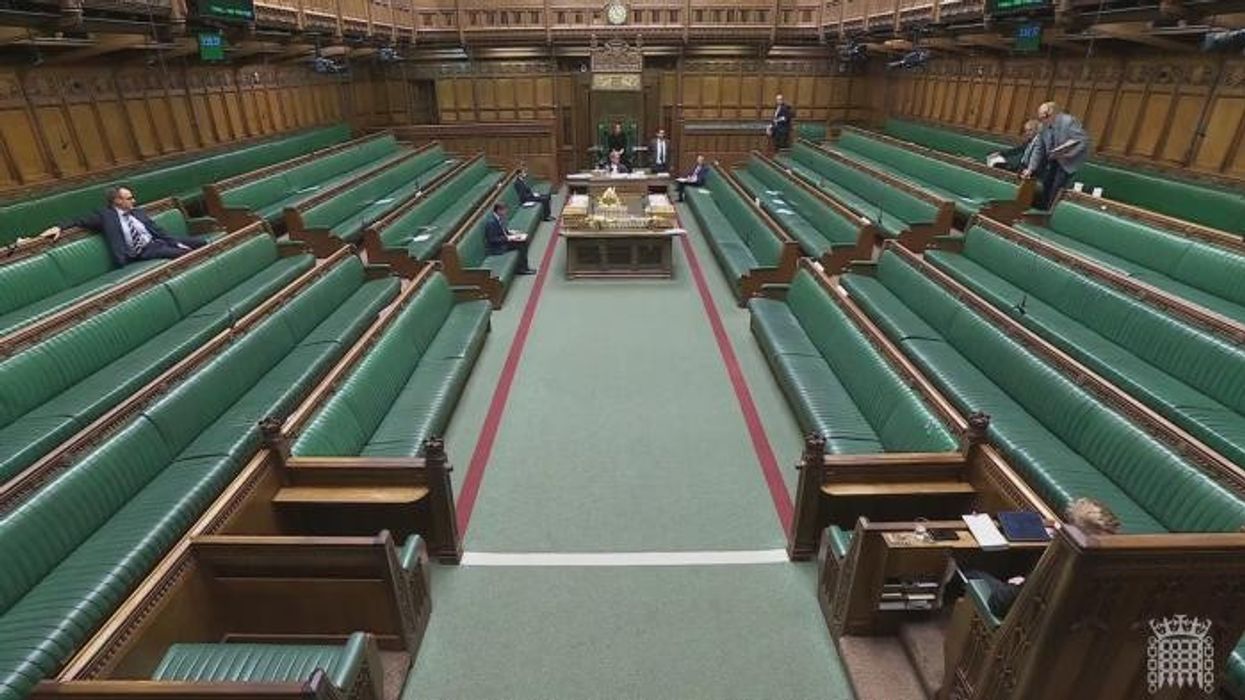
Danny Kruger discusses the role of Christianity in the House of Commons |
GB NEWS

Britain’s religious landscape may be undergoing its most significant generational shift in decades
Don't Miss
Most Read
Trending on GB News
Young Britons are driving an unexpected surge in Christianity in the UK, with GB News hearing from those who have found faith in both God and the Church.
The UK had been experiencing a staggering decline in Christianity over the past decade, with under two per cent of Britons regularly attending Church of England services.
However, since being freed from lockdown, UK churches have witnessed a major surge in loyal attendees - often spearheaded by younger people.
**ARE YOU READING THIS ON OUR APP? DOWNLOAD NOW FOR THE BEST GB NEWS EXPERIENCE**
Figures from YouGov’s bi-annual tracker revealed that belief in God among 18 to 24-year-olds has almost tripled in just three-and-a-half years, rising from 16 per cent in August 2021 to 45 per cent in January 2025.
Among 25-49-year-olds, belief has risen more modestly, from 21 per cent to 33 per cent over the same period.
Church attendance figures have also increased, according to two YouGov polls in 2018 and 2024, which showed a 56 per cent growth in UK adults attending church at least once a month.
When comparing the data - which excludes weddings, baptisms, and funerals - numbers rose from eight per cent in 2018 to 12 per cent in 2024.
The drastic change means the total population of monthly churchgoers rose from 3.7 million to 5.8 million people in just six years.
See the full YouGov Data breakdown of 18 to 24-year-olds below:
- 2021: 16 per cent
- 2022: 19 per cent
- 2023: 34 per cent
- 2024: 39 per cent
- 2025: 45 per cent
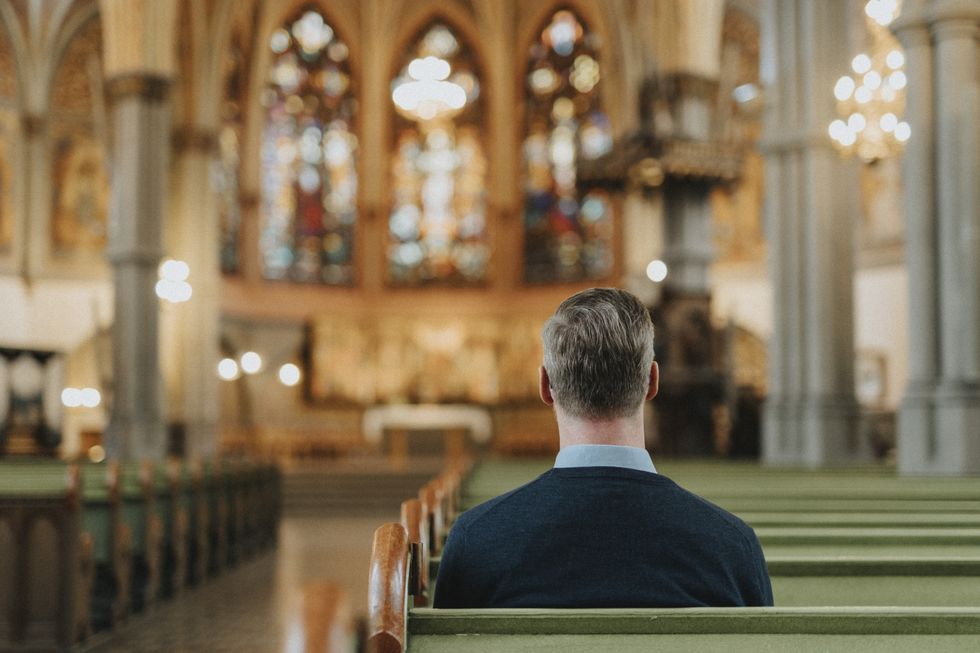
Young Brits are driving an unexpected revival surge in Christianity in the UK, according to figures
|GETTY
And now GB News is hearing from those leading Britain's Christian revival.
Naomi Boden, 13, who describes herself as a Christian with a strong faith, told the People's Channel: "Problems in the world are becoming greater, people are looking for somewhere to turn with their problems."
She also believes social media has impacted people's decisions because influencers share their faith online.
Miss Boden added the trend will continue because "it's no longer a case of getting looked down upon because of your religion, so people may feel more comfortable".
She pointed out young people today turn to Christianity for different reasons than the older generation, adding: "People might just have been Christians because their parents were, but nowadays the choice is more left to them".
"There are plenty of clubs and youth groups that most churches have which talk about more relevant topics," the 13-year-old also claimed.
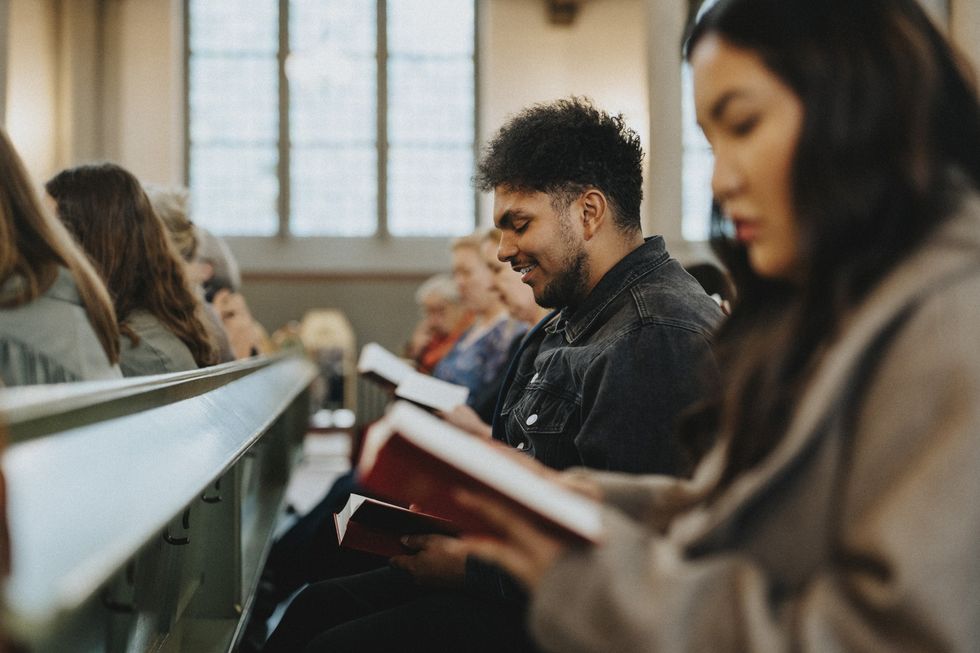
Younger generations largely drive the growth
|GETTY
Younger generations largely drive the growth, with the number of 18 to 24-year-olds attending church quadrupling.
The figure rose from just four per cent in 2018 to 16 per cent in 2024.
The largest increase was among young men, who rose from one-in-25 to one-in-five over the same time period.
Young women also witnessed a staggering rise, jumping from three per cent to 12 per cent.
The increase means that 18 to 24-year-olds now make up the second most likely age group to attend church regularly, according to the data.
However, there is also a marked gender divide in churchgoing, with 13 per cent of men attending, compared to just 10 per cent of women.
Ethnic diversity among Christians is also increasing, with official data showing that 32 per cent of 18 to 54-year-old churchgoers come from ethnic minorities, compared with 19 per cent overall.
Father Damian Feeney, of Holy Trinity in Ettingshall, told GB News that his Wolverhampton Church is also experiencing a surge among young people.

Young women also witnessed a staggering rise
|GETTY
He said: "Very often it is after a period of absence: those brought up in a Church environment may well associate returning to the faith with a more general getting their lives back on track."
The priest explained that many factors could be responsible for this shift, including a "need for structure, shape and routine in their life... and a desire for stability at a time when otherwise life can seem destabilised".
He argued that the political landscape is more febrile than it was, adding: "The age group we are talking about were born at the beginning of the millennium, and social stability seems to many a distant memory. This is equally true of employment prospects, the economy, and Brexit."
Father Damian said: "The desire for structure and order previously mentioned has led to a renewal of interest in traditional, liturgical worship among young adults. This isn’t the only type of growth, for sure; but it is significant. The use of beauty in language, colour, music, drama in fairly classic ways have grown in appeal."
"The spur and motivation to explore the faith afresh may come from [secularism, uncertainty, or global challenges] but it should be clear that every individual will have their own story, their own journey. My personal view is that secularism seems simply too one-dimensional and beige, with little by way of excitement or mystery, but I would say that, wouldn’t I?"
"The church needs to listen with fresh ears, and to do so in a sustained way - not to learn how to ‘do things differently’ but understanding the challenges this age group faces and relating those challenges to the person of Jesus and the Good News He brings. All this without rushing to judgement and recognising that such engagement enriches us all."
He told the People's Channel he hoped the surge would continue, grow, and be a sign of hope for the church and young adults everywhere.
Father Damian added: "Young adults, and young people generally, are an enormous enrichment to the whole church family. A previous generation, post WWII, who ‘went to church’ couldn’t understand why succeeding generations ‘fell off’ in the way they did. The re-engagement of such a significant age range provides a partial answer to that but it’s good for everyone, because it places more people in touch with God, who alone has the capacity to transform human lives."
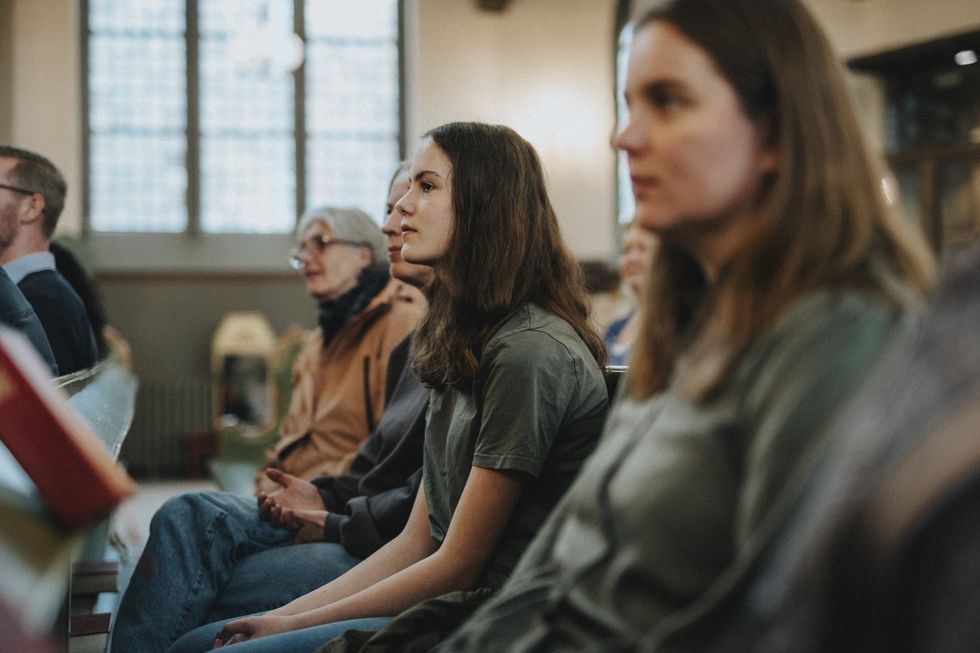
Nearly a third express curiosity about learning more about the Bible
|GETTY
Despite Britain's Christian surge, the Anglican church has seen numbers fall from 41 per cent to 34 per cent since 2018.
Meanwhile, Roman Catholic attendance has grown from 23 per cent to 31 per cent, and Pentecostal attendance rose from four per cent to 10 per cent.
Among 18 to 34-year-old churchgoers, only one-in-five are Anglican, down from nearly one-in-three, compared with 41 per cent Catholic and 18 per cent Pentecostal.
The report notes "hostility" and "apathy" to Christianity seen among older generations are being replaced by “openness” in Generation Z.
More than half of 18 to 24-year-olds say they have engaged in a spiritual practice in the past six months, compared with 42 per cent of older generations.
Nearly a third express curiosity about learning more about the Bible, while 40 per cent pray at least once a month.
Emma Buchan, Head of the Church of England’s Churches and Networks Support Team, told GB News: "The findings reveal a growing interest in church among younger generations, with many drawn to explore faith, Scripture, and Christian community.
"The Church of England has now seen growth in average weekly attendance among both adults and young people for four consecutive years, reflecting this wider renewal and spiritual curiosity."
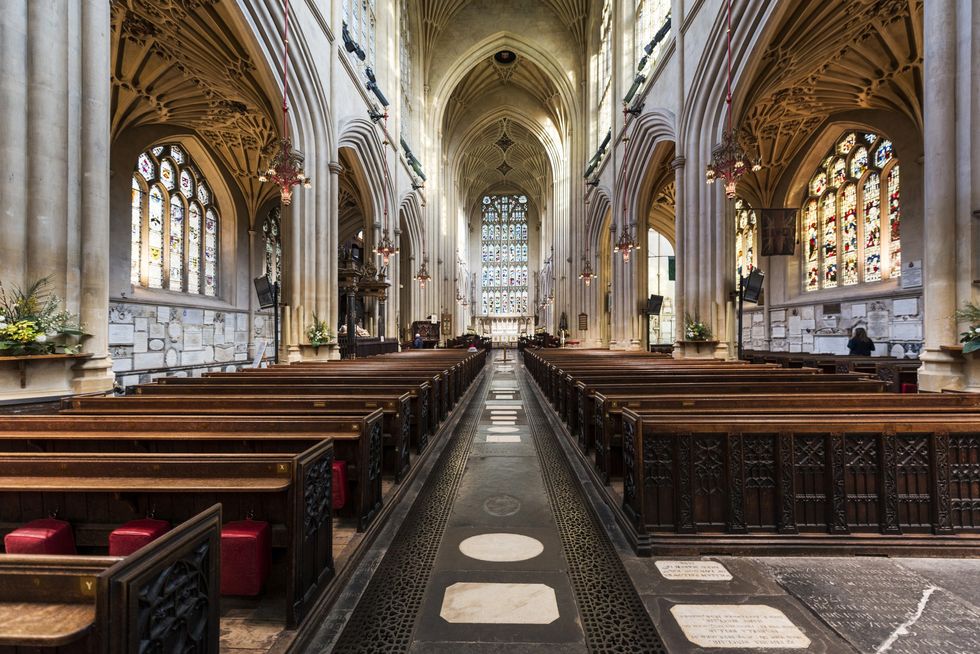
More than half of 18 to 24-year-olds say they have engaged in a spiritual practice in the past six months
| GETTYShe added: "Across the country, clergy report the same encouraging sight: young people arriving at church each week, often with a newly bought Bible in hand, eager to understand more. As a Church, we have been united in praying for more people to know the love of God for themselves, and it is deeply heartening to see young people responding and engaging with faith in fresh ways and across traditions.
"Much of this is driven by young adults seeking authenticity, depth, and a faith that speaks into everyday life. They are not primarily returning for tradition, but for an encounter with Christ that is transformative. In one parish, a course in a local pub exploring life’s biggest questions and Jesus’ answers has led to 25 young men aged 18 to 24 joining the congregation.
"The opportunity before the Church of England is clear: to nurture this spiritual curiosity by creating spaces for encounter, engaging with life’s biggest questions, and nurturing communities. Digital Christian initiatives such as The Way UK, which has one in 20 young people following them on social media, are already connecting with hundreds of thousands online and working on ways to offer pathways into local church life.
"With Bible sales in the UK doubling since 2019 and interest in Christian faith continuing to grow, the signs point to a generation turning back to God and seeking a faith that transforms lives."
Despite the increase in the number of young people turning to Christianity, the People's Channel also spoke to a 27-year-old woman who said: "I was drawn in as a teenager through the youth club.
"All my friends were part of the Church, and I wanted to belong. I believed it, threw myself into it and it became my whole world. I was baptised at 18, spent summers at Bible camps, volunteered in churches in Ethiopia and lived and breathed the faith despite nobody in my family attending church.
"University was my turning point. I wanted freedom, real freedom, and I saw how the world outside didn’t just ignore Christianity’s rules, it rejected them. Slowly, I found those rules felt less like guidance and more like chains.
"These days, religion barely crosses my mind. To me, it’s simply something some people hold on to – a community, a tradition – but it’s no longer part of my story."

Bible sales in the UK have almost doubled in five years
|GETTY
Hannah Boden, 16, who grew up in an Evangelical Free Church family and decided to be a Christian aged 12, told GB News: "I think social media has had a big impact on the youth getting involved in Christianity.
"Churches have many youth groups for all ages to attend so this could be a contributing factor for more younger people getting involved. I do think there is going to be more Christians in the future as the religion is quickly growing."
Another young Christian, Amelia Boden, 18, added: “I’m Christian because I believe there is only one God that can help me through life and guide me through tough times.
“I think my generation is starting to come to Christ so they have someone to talk to and having friends in the same faith means they have people to turn to.
“I believe more younger people are becoming Christians now because they see how Church and God have helped other people and want to do the same to have some support.
“Social media has had a big impact on the faith because when someone starts something online, it can influence people to try something new.
“I think my generation of Christians believe in things like marriage and baptismal but also see God as a comfort and support system. I will always go to Church through everything.”
Bible sales in the UK have almost doubled in five years, with 2019 sales totalling £2.69million but surging to £5.02 million in 2024, according to Nielsen BookScan figures.
While some caution that these could be temporary spikes, the figures, combined with Christians who have spoken to GB News, suggest that Britain’s religious landscape may be undergoing its most significant generational shift in decades.
More From GB News








